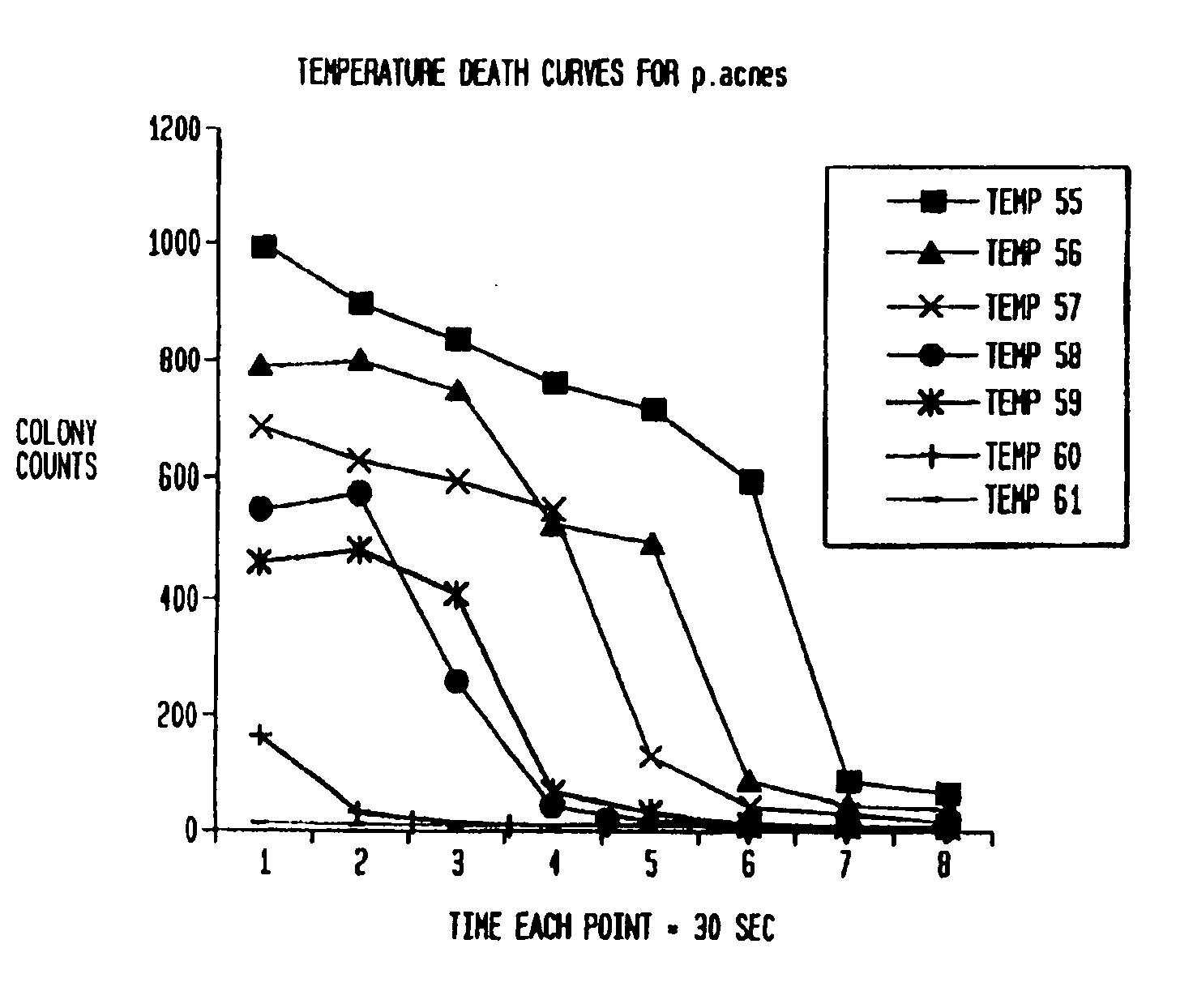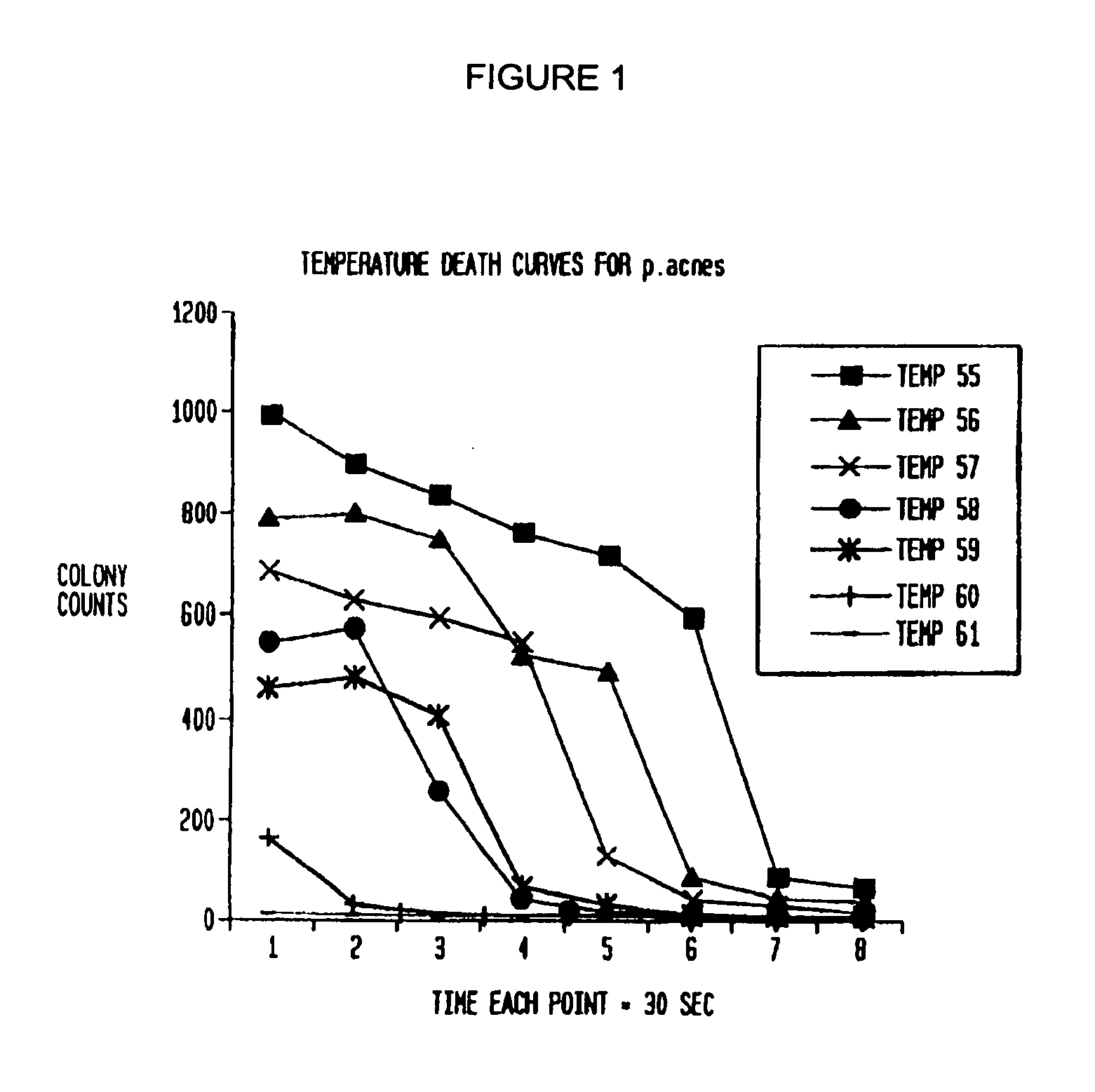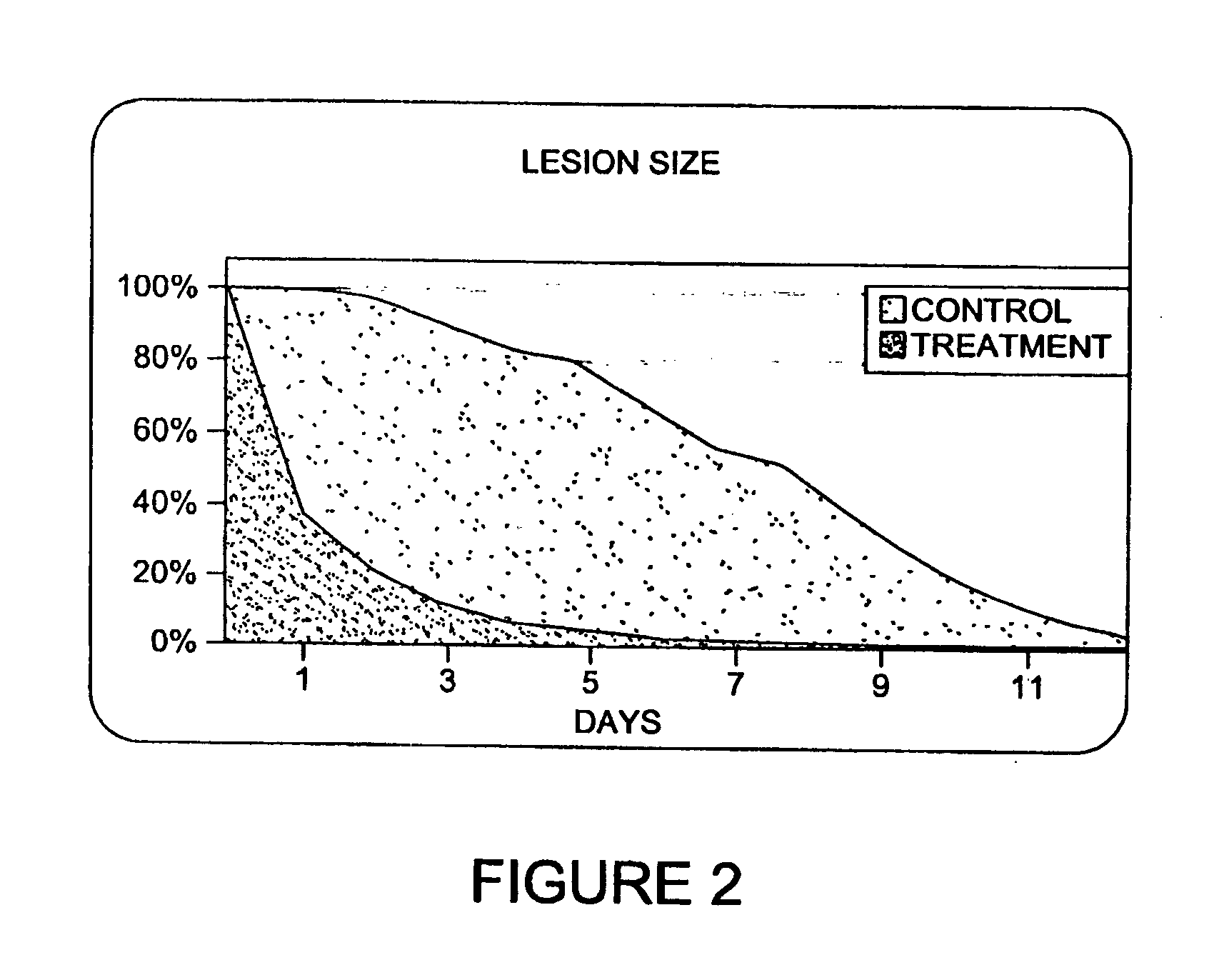Methods and devices for the treatment of skin lesions
a skin lesions and skin technology, applied in the field of skin lesions treatment methods and devices, can solve the problems of insufficient current treatment methods, skin infections and irritations pose significant health and cosmetic problems, and skin lesions are often unsightly and painful, so as to accelerate the death of invading bacteria, speed up the recovery process, and facilitate the breakdown of skin irritants.
- Summary
- Abstract
- Description
- Claims
- Application Information
AI Technical Summary
Benefits of technology
Problems solved by technology
Method used
Image
Examples
example 1
[0092] Temperature Dependent Death Curves for P. acnes.
[0093] Materials and Methods: The bacterial strain P. acnes was purchased from The American Type Culture Collection ATCC (No. 11827, Lot 419571, Manassas, Va.). The cultures were stored in KWIK-STIK lyophilized preparations. The lyophilized cells (P. acnes) were rehydrated according to the manufacturers recommendations and initially grown on a streak plate to isolate individual colonies under anaerobic conditions. These plates were then incubated overnight at 37° C. in an anaerobic chamber. Individual colonies were then isolated and inoculated into TSB-growth media with medium agitation overnight. From these aliquots of 0.1 ml of TSB broth culture was added to the 0.9 ml of PBS sterile buffer. This mixture was then transferred to thin-walled Eppendorf 1.5 ml tubes and placed in a heating block at various times and temperatures. The cultures after specific incubation times were removed and 0.1 ml of the material was plated onto ...
example 2
[0095] Treatment of acne lesions in human subjects. The inventors have performed preliminary studies on over 100 volunteers experiencing outbreaks of acne lesions. All subjects reported being satisfied with the results obtained. The results showed a clear response to treatment in approximately 90% of subjects treated. No subject reported any serious adverse effects due to treatment. Furthermore, we have discovered a treated lesion heals more than 80% faster than untreated lesions.
[0096] The electrical device used in the present study had an interface of approximately 0.4 cm2. The interface of the device was heated to a constant temperature of approximately 48-50° C. prior to application of the device to the skin surface, and the temperature was maintained during the treatment period. Each of the subjects were given instructions on how to use the device and were monitored during the treatment. The treatment consisted of a 2½ minute application of the device to the lesion site. The s...
example 3
[0098] The inventors have tested the device on multiple oral herpes lesions of human volunteers, and the results have shown a complete termination of the herpetic lesion after two applications of the device at 2½ minutes per treatment, 12 hours apart, as described in Example 2. The volunteers reported a marked decrease in healing time after treatment versus the usual healing cycle for lesions of this type.
PUM
 Login to View More
Login to View More Abstract
Description
Claims
Application Information
 Login to View More
Login to View More - R&D
- Intellectual Property
- Life Sciences
- Materials
- Tech Scout
- Unparalleled Data Quality
- Higher Quality Content
- 60% Fewer Hallucinations
Browse by: Latest US Patents, China's latest patents, Technical Efficacy Thesaurus, Application Domain, Technology Topic, Popular Technical Reports.
© 2025 PatSnap. All rights reserved.Legal|Privacy policy|Modern Slavery Act Transparency Statement|Sitemap|About US| Contact US: help@patsnap.com



